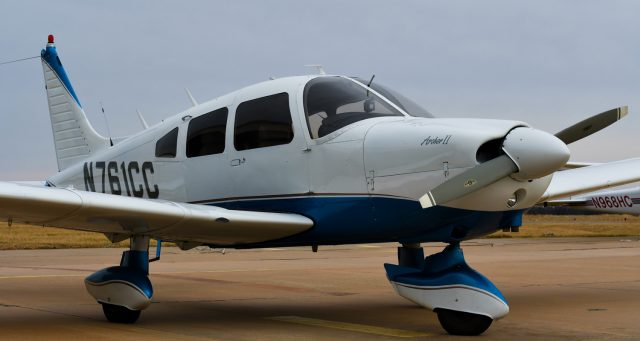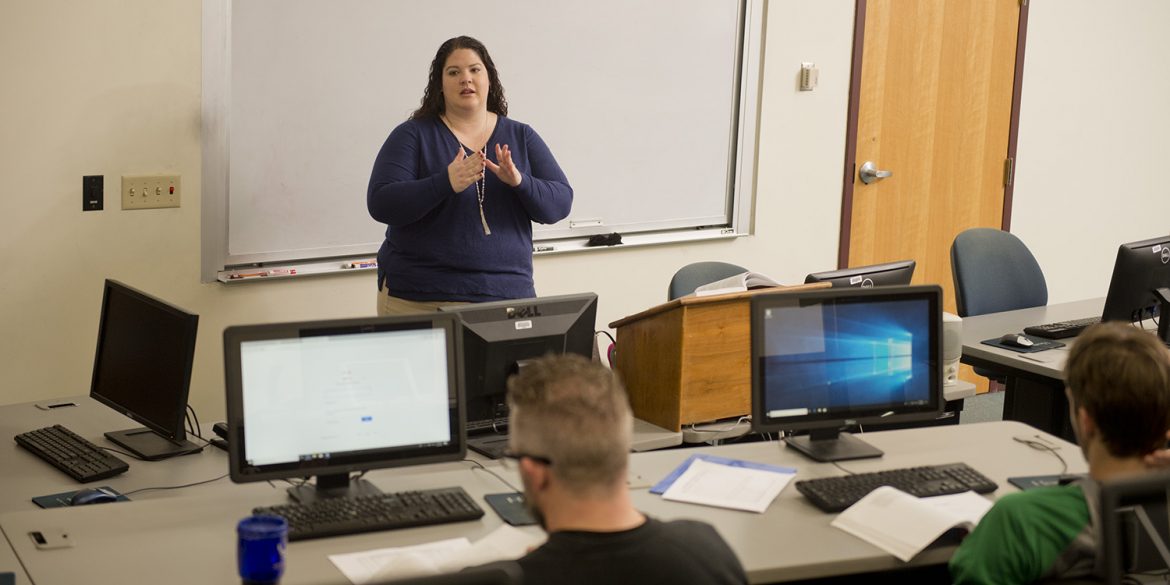Hesston College has been granted approval by the Higher Learning Commission (HLC), the college’s accrediting agency, for a bachelor’s degree program in aviation-professional pilot. The college plans to launch the program for the 2019-20 year.
The bachelor’s degree in aviation will be the second baccalaureate program for Hesston College, joining the Bachelor of Science in Nursing program, which began in 2015. Hesston College will also continue to offer the Associate of Applied Arts and Sciences – Professional Pilot degree, giving students options for their educational and professional goals.
“The FAA has increased its expectations for pilots, especially those who transport people, and offering a bachelor’s degree prepares our students to meet those expectations more quickly,” said Brent Yoder, vice president of Academics. “In the past, co-pilots have been able to build flight hours on the job, but that’s not the case anymore. They need more experience and knowledge to get the jobs that are available.”
With rising pilot demand nationwide and worldwide, Hesston College Aviation has also seen building interest. In fall 2018, 18 new students enrolled in the aviation program as compared to eight a year prior, and eight more joined the program in January, bringing the total number of students enrolled with Hesston College Aviation to 38 with the start of the spring 2019 semester.
“The industry is definitely on an upward trajectory, and we’re seeing that right now and with our current enrollment and with our prospects for the coming fall semester,” said Yoder. “Hesston College has always been committed to offering the best student experience possible, and that starts with providing the programs and training our students need for their careers.”
With accreditation approval granted, the next step is to gain FAA approval of the bachelor’s program, which will allow student pilots to earn the necessary certificate to transport people – the Air Transport Pilot (ATP) certificate – at 1,000 hours of flight time as opposed to the 1,250 hours needed with an associate’s degree.
Students will continue to earn most of the required certifications and ratings in the first two years of the program, and much of the junior- and senior-level work will be classroom-based or, in some cases, a hybrid of online and on-campus classes. Students in the third and fourth years of the program will continue to build their flight hours through industry internships, which Mike Baker, director of Hesston College Aviation, is working to organize.
“Upper level aviation students will gain industry experience and build their flight hours through internships with partnering companies and organizations or even as flight instructors with Hesston’s program,” said Yoder.
Hesston College Aviation began in 1970 as an associate degree program at a time when the college had just revised its general education curriculum and wanted to implement more career options.

Operating from its own hangar at the Newton City/County Airport, about 15 minutes from the main campus in Hesston, the program currently maintains a fleet of five single-engine Cessna and Piper series aircraft, and a Piper Twin Comanche. Other training equipment includes a Redbird MCX C182 G1000 GFC FAA-approved Aviation Training Device (ATD). Part of the HLC’s program recommendations were to upgrade aircraft, a project which the college has already undertaken, having already purchased one Piper Archer and a commitment to purchase a second with the possibility of more.
In 2009, Hesston College Aviation introduced an Air Traffic Control (ATC) program in addition to flight training. In 2010, the ATC program was one of 36 programs nationwide approved as a Collegiate Training Initiative (CTI) program by the FAA, and the only program in the state of Kansas to earn CTI status. As a preparatory program for further training through the FAA, the ATC program will continue to offer only an associate’s degree.
More than 700 pilots have trained at Hesston College in the program’s 48-year history, and work in a variety of roles across the industry, including pilots for regional, national and world-wide airlines, corporate and charter companies, serve as missionary pilots or with humanitarian organizations, flight instructors, aerial application, FAA inspectors, medical evacuation pilots and more.
“Hesston College Aviation has long held a standard of producing highly professional pilots,” said Yoder. “As the industry changes, we’re so pleased to be able to continue offering that high level of preparation.”


